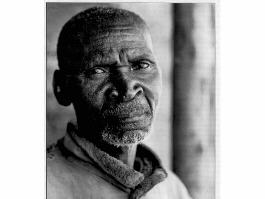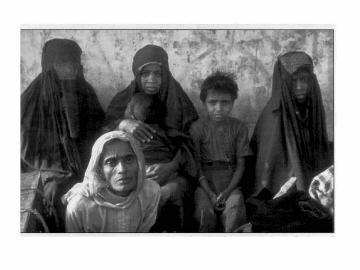History of Suffering
 “Yet, faced with conditions in God’s creation that cry out to heaven, how can the theology of the creator God avoid the suspicion of apathy unless it takes up the language of a suffering God? Is it not true, as John so succinctly states, that “God is love” (1 Jn. 4:16)? How could this biblical proposition stand up except with the language of a suffering God, a God who suffers with his creation, a creation permeated with suffering? Certainly where one conceives of divine predicates in a realm of timeless repose and then subsequently confronts them with the scandalous injustices in the world — the almighty god, as he contemplates from above the suffering of his creation — everything collapses into irredeemable contradictions, everything leads finally to cynicism or apathy. What is forgotten thereby, however, is that all the divine predicates in the biblical traditions — from the self-definition of God in Exodus to the Johannine word “God is love” — bear the mark of a promise, a mark that legitimates and necessitates theology speaking of creation and the creative power of God in the form of a negative theology (“I will be for you who I will be”; “I will prove myself to you as love.”). . .”
“Yet, faced with conditions in God’s creation that cry out to heaven, how can the theology of the creator God avoid the suspicion of apathy unless it takes up the language of a suffering God? Is it not true, as John so succinctly states, that “God is love” (1 Jn. 4:16)? How could this biblical proposition stand up except with the language of a suffering God, a God who suffers with his creation, a creation permeated with suffering? Certainly where one conceives of divine predicates in a realm of timeless repose and then subsequently confronts them with the scandalous injustices in the world — the almighty god, as he contemplates from above the suffering of his creation — everything collapses into irredeemable contradictions, everything leads finally to cynicism or apathy. What is forgotten thereby, however, is that all the divine predicates in the biblical traditions — from the self-definition of God in Exodus to the Johannine word “God is love” — bear the mark of a promise, a mark that legitimates and necessitates theology speaking of creation and the creative power of God in the form of a negative theology (“I will be for you who I will be”; “I will prove myself to you as love.”). . .”
(Suffering unto God, Metz)
“History is not to be whitewashed “by a screening out of the importance of suffering.”
(Future in the Memory of Suffering, Metz, 1972)
If there is a screening out suffering, the gravity, the magnitude of the suffering and deaths caused by history will be minimized. Humankind will have learned nothing and another opportunity to repeat history will be opened up.
Prepared by Roger de la Rosa, S.J., Daniel Greer, S.J., & J. Thomas Hayes, S.J.
Solidarity
Solidarity. This is what Metz wants for us to realize. We cannot put millions of suffering, oppressed people into what he calls a “faceless mass.” The individuality of persons is lost in this way. How can we, meaning privileged, white people, sit here in our comfortable homes with cars, multiple televisions and telephones, CD players and basic running water, be in solidarity with one who has no home, no food, no water? The solution is not to give her a telephone or CD player. It is to move her to the United States. It is to realize and remember that I am a selfish, privileged, idealistic person who must recognize that I can do something. No matter how small or your efforts seem, anything is something to someone suffering. This is what Metz wants for us. Though we lead comfortable lives, too many do not. Ideally, our situation would allow us to live in poverty, in the same context in which the suffering live. Instead, we should try to uplift the people who are oppressed, suffering, and subjugated. For most of us, to leave our comfortable lives is not possible, so it is imperative that we make efforts for change from our current situation. We cannot allow ourselves to gloss over what we see and become numb to the injustices of the world. To be in solidarity and to help lead people to salvation is part of the efforts that must be made in the name of the Lord.
Prepared by Christine Baus
Interruption
Johann-Bapist Metz’s political theology is a theology that is based on the idea of interruption. The concerns of first world people are not like those of the third world; for the most part, we are not dealing with a population that is lacking in material goods. The concerns of the people of the first world are the concerns that deal with excess; we have entered a cycle of consuming too much and not see how destructive this is to us and to our world; the results are always emptiness and destruction. Metz’s interruption is aimed at waking us up from our dreamy world and disrupt our apparently comfortable lives by forcing us to look around our world and see how destructive we can be when we are blind to the suffering of those around us. Metz would say that we are then attentive to the ‘other’. These kinds of disruptions can come as dangerous memories where we remember events of the past that question our consciences. Furthermore, Metz thinks that they have trapped us inside egotistic and ethnocentric mentalities; as a result, a political theology will interrupt us in our endless cycle of mundaneness of life and liberate us from consumption that in the end always leaves us not in fulfillment, but in emptiness of heart.
Prepared by Bryan V. Pham, S.J.
Dangerous Memories
“In order to experience and understand what it means to be a Christian, it is always necessary to recognize a definite historical situation.”
(Facing the Jews, Metz, 1984)
 Past histories of cultures have adopted their own views on what was appropriate for society to remember. In doing so they have effectively stifled a true understanding of past experiences of our cultures. Consequently, in effect they have left out critical pieces of the puzzle to secure their own desired wishes. “In order to experience and understand what it means to be a Christian, it is always necessary to recognize a definite historical situation” (ibid.). Therefore, it is of the utmost importance that we challenge society by asking questions and demanding answers. In addition, we are called to confront those who have been allowed to dictate the narrative memories of our history and the “dangerous memories,” such as Auschwitz, so that we can retrieve the necessary missing pieces of our cultural experience.
Past histories of cultures have adopted their own views on what was appropriate for society to remember. In doing so they have effectively stifled a true understanding of past experiences of our cultures. Consequently, in effect they have left out critical pieces of the puzzle to secure their own desired wishes. “In order to experience and understand what it means to be a Christian, it is always necessary to recognize a definite historical situation” (ibid.). Therefore, it is of the utmost importance that we challenge society by asking questions and demanding answers. In addition, we are called to confront those who have been allowed to dictate the narrative memories of our history and the “dangerous memories,” such as Auschwitz, so that we can retrieve the necessary missing pieces of our cultural experience.
Prepared by Sonja S. Devaney
